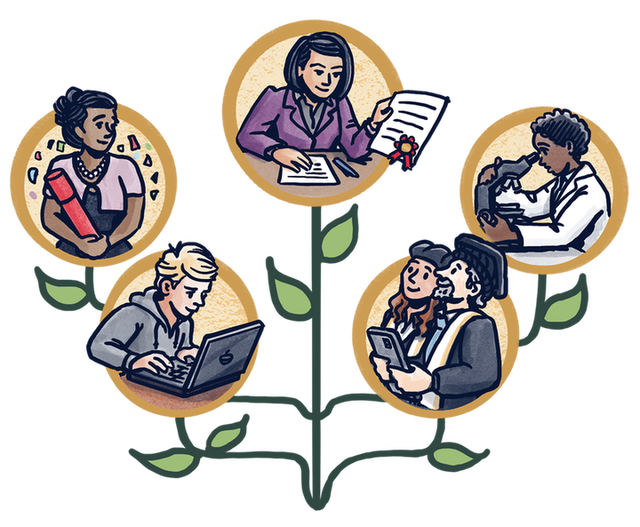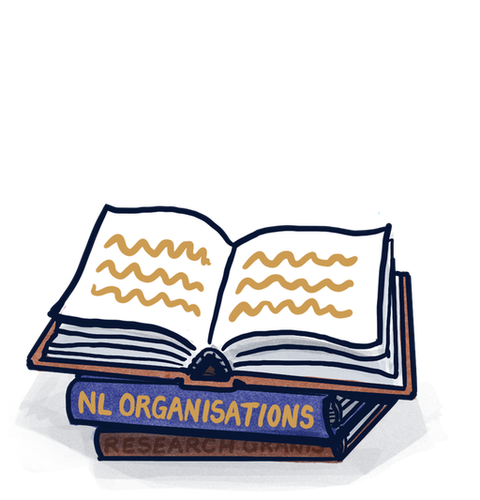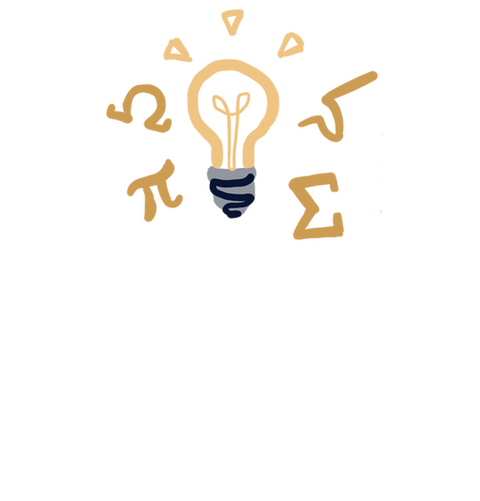2
Who does what?
Research organisations in the Netherlands
2.1
Ministry of Education, Culture and Science
The Ministry of Education, Culture and Science (Ministerie van Onderwijs, Cultuur en Wetenschap, OCW) is responsible for Dutch higher education and research, with the exception of agricultural research and some ‘innovation-oriented research’ (innovatiegericht onderzoek, particularly Wageningen University & Research), which fall under the Ministry of Economic Affairs and Climate Policy (Ministerie van Economische Zaken en Klimaat, EZK).
2.2
Universities of the Netherlands
Universities of the Netherlands (Universiteiten van Nederland, UNL) is the umbrella organization of Dutch research universities. It represents the Dutch universities in politics and society at large. The 14 Dutch universities within UNL show the outside world how they fulfil their social function, formulate shared ambitions relating to academic education and research and valorisation, and lobby for the preconditions needed to realise these ambitions. As the university employers’ association, it also negotiates the Collective Labour Agreement of Dutch Universities (Collectieve Arbeidsovereenkomst voor de Nederlandse Universiteiten, CAO NU) with the various labour unions. The most recent version of the cao (both in Dutch and English) can be found on the UNL website.
The board (bestuur) is composed of the chairs and vice-chairs of the three steering groups (stuurgroepen) of UNL and chaired by the president of UNL. Each university is represented in each steering group by the portfolio holder of its executive board. All members of the executive boards of the universities meet in the General Assembly.
2.3
Dutch Research Council
The Dutch Research Council (Nederlandse Organisatie voor Wetenschappelijk Onderzoek, NWO) is the primary national funding body for researchers in the Netherlands. NWO’s specific funding schemes are introduced in Section 4.2. The Institutes Organisation of NWO (NWO-I) is a sister organisation and is the umbrella organisation of nine research institutes (see Section 1.1). NWO and NWO-I have different missions and executive boards.
A new structure of NWO became effective in January 2017. One of the goals of the restructuring programme was to create larger domains in which interdisciplinary research would be more easily accommodated. NWO’s reorganisation has strengthened its paramount position by unifying research policy and practices and by promoting interdisciplinary initiatives. The NWO website and its newsletters are a reliable source of updates on national debates related to higher education and research.
NWO receives its funds directly from the Ministry of Education, Culture and Science and this means that political priorities, e.g., support for the ‘top sectors’ (see Section 5.2), a government economic programme that stresses applied research, play a part in the evaluation process, in addition to the excellence of the researcher and the research proposal.
NWO-I funds and manages nine research institutes (see Section 1.1). There often exist strong collaborations between these institutes and the universities, with shared research programmes, student supervision and practical teaching.
2.4
Royal Netherlands Academy of Arts and Sciences
The Royal Netherlands Academy of Arts and Sciences (Koninklijke Nederlandse Akademie van Wetenschappen, KNAW) was founded in 1808 as an advisory body to the Dutch government. Today, it consists of a learned society with four domains: 1) Behavioural Sciences, Social Sciences and Law, 2) Humanities, 3) Medical, Biomedical and Health Sciences, 4) Natural Sciences and Engineering (approx. 550 members altogether). The members of the KNAW are chosen based on their highly valued contributions to science and scholarship. Membership is for life. Annually there are 16 new members selected based on nominations from both within and outside the KNAW. External referees are consulted on these nominations.
The KNAW has four advisory councils in broad disciplinary areas. The councils play a significant role in drawing up and implementing the Academy’s overall advisory agenda. Special committees have been established in specific areas of concern, such as education and freedom of scientific pursuit.
In addition, the Academy is home to The Young Academy (De Jonge Akademie), founded in 2005 (50 members, elected for five years, within 10 years after PhD), and the Society of Arts (Akademie van Kunsten), founded in 2014 (approx. 80 members, elected for life). The Academy funds and manages a group of national research institutes (see Section 1.1). The Academy also awards a number of fellowships and prizes. For the Academy’s funding activities, see Section 4.4.
2.5
National research schools
The national research schools (nationale onderzoeksscholen) or graduate schools are, arguably, a uniquely Dutch phenomenon and deserve separate mention. These schools, currently more than forty in number, bring researchers from Dutch universities together in a shared research domain to train graduate students (mostly PhD candidates, but also research Master students) and encourage transregional scholarly collaboration. Each national research school is housed in one of the universities, spread more or less equally over the universities. They may also collaborate with the NWO-I and KNAW institutes.
Het gebruik van woorden
Uit onderzoek blijkt dat het gebruik van woorden die over het algemeen als vrouwelijk worden beschouwd andere genders vaak niet afschrikken, terwijl woorden die over het algemeen als mannelijk worden beschouwd vrouwen ervan kunnen weerhouden te solliciteren.
Woorden die over het algemeen als vrouwelijk worden beschouwd
Aardig, bedachtzaam/zorgzaam, begripvol, behulpzaam, beleefd, bereidwillig, bescheiden, betrokken, betrouwbaar, flexibel/meegaand, groepsgericht, communicatief, coöperatief, creatief, eerlijk, emotioneel, empathie/empathisch, enthousiast, vrouwelijk, gevoelig, gezellig, aanhankelijk, humaan, onderling afhankelijk, interpersoonlijk, klantvriendelijk, loyaal, medelevend, menselijk, nauwgezet/precies, onderdanig, open, ordelijk, plezierig, sociaal, ondersteuning/ondersteunend, stil/op zichzelf, sympathiek, toegewijd, veelzijdig, verantwoordelijk, verbindend/verbonden, verwantschap, vleiend, dociel, vriendelijk, vrolijk, warm, zachtaardig, voorzichtig
Woorden die over het algemeen als mannelijk worden beschouwd
Actief, agressief, analytisch, assertief, atletisch, autonoom, avontuurlijk, vastbesloten, besluitvaardig, bluffen/opscheppen, chemisch, commercieel, competent, competitief, deskundig, direct, doelgericht, vastberaden, effectief, dominant, energiek, fanatiek, gedreven, gretig/hebzuchtig, overdreven, obstinaat, handig, hiërarchisch, impulsief, individueel, individualistisch, industrieel, ingenieus, innovatief, koppig/star, kracht, kritisch, leider/leiderschap, logisch, mannelijk, mening, moed, moedig, meedogenloos/roekeloos, objectief, zelfstandig, ondernemend, praktijkgericht, principieel, professioneel, resultaatgericht, snel, solide, sterk, stressbestendig, superieur, technisch, leidend, uitdagend, vijandig, volhardend, onafhankelijk, zelfsturend, zelfverzekerd, zelfvoorzienend
Bron: Direction’s research Inclusive Recruitment and Selection (2016), p. 18/19, Vervecken, Verwijvel, Gijbels & Van den Bossche, P. (2015), Pennebaker, Booth & Francis (2007).
Colophon
2022 The Young Academy (De Jonge Akademie)
© Some rights reserved.
Usage and distribution of this work is defined in the Creative Commons License, Attribution 4.0 Netherlands. (CC BY-NC-SA 4.0)
ISBN: 978-90-6984-751-1
The Young Academy
PO Box 19121, NL-1000 GC Amsterdam T+31 (0)20 551 0702
dja@knaw.nl
The Young Academy is an independent part of the Royal Netherlands Academy of Arts and Sciences
Text: Raf de Bont, Tatiana Filatova, Jason Hessels, Nathalie Katsonis, Christian Lange
Illustrations: Rachelle Meyer
Design & realisation: WAT ontwerpers
Platform: H5mag.com
Preferred citation: The Young Academy (2022). A beginner’s guide to Dutch academia, Amsterdam


